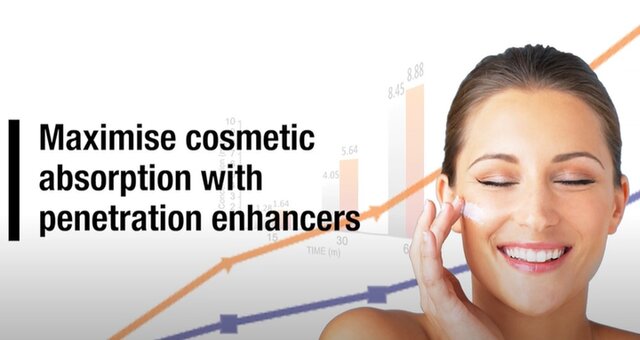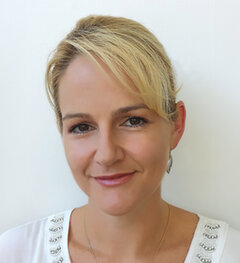COLUMN: HOW TO FORMULATE
How to formulate for the ageing skincare market
Whether they want to age gracefully, or reverse the signs of ageing, consumers in the ageing skincare market have certain ‘needs’ in order to obtain desired well-ageing results. The ageing skincare market is also ready to invest in good products to keep their skin looking its best, and they have the means to afford quality products to address their concerns, making them an affluent and desirable sector of the market to create formulas for. Here is a go-to list of the essential ingredients needed in cosmetic formulas for those aged 50+, to help give their skin back what ageing has taken away…
Hydration and moisture protection
As we age, the natural production of sebum decreases markedly, which leaves the skin looking dry and flaky. Additionally, without sufficient natural sebum to cover the skin, there is greater trans-epidermal water loss, leaving the skin looking flatter, less supple, and less vibrant.
Ageing skincare formulas therefore need a higher lipid and humectant content. For example:
- Cleansers should be formulated as cleansing balms or crème cleansers only. The ageing skincare market is likely to find foaming cleansers too ‘stripping’ or drying for their skin type. The cleansers should still remove make up, leaving the skin feeling clean and non-greasy, but must provide a much milder approach with lipids present, so that the skin doesn’t feel tight after application.
- Moisturisers should be rich in humectants, which help restore hydration and suppleness to the skin. Humectants also act as osmolytes, which helps ensure delivery of key actives to the mid layers of the epidermis for better activity.
- Consider if the moisturising formula would benefit from being water-in-oil (w/o) – this can leave a lasting emollient layer on the skin to hold hydration in and keep the skin feeling smooth. There are novel emulsifying agents allowing the creation of w/o emulsions with an external oil continuous phase lower than the water input, find out about a simple solution in this video. This means the final product has a high lipid input but doesn’t feel greasy. The ageing skincare market doesn’t want products with an oily residue, but they will be looking for a much higher lipid content in their skincare compared to younger consumers.
Emollients not only provide a supple feel to the skin, they can also help provide lipid integrity between cells to reduce the rate at which they flake away from the surface of the skin. This helps reduce the appearance of flaking, protects the exposure of underlying cells and visually improves the skin’s surface. The use of waxes and water-resistant ingredients can also help provide occlusive barriers to moisture losses.


Boost collagen and elasticity
As we age, the elastin fibres in our skin clump together and deteriorate. They can also bind together, become stiffer and therefore offer less structural support. The addition of collagen, peptides and/or proteins is essential in ageing skincare products. High molecular weight proteins, collagen and elastin can help provide structural integrity to the outer layer of the skin and help hold moisture within skin layers. Watch this video to learn the difference between proteins, peptides and collagen, and why they are so beneficial for ageing skin care formulas.
Hydrolysed proteins are a great addition to personal care formulas and can be quite cost effective. They will sit on the surface of the skin and provide structural support and integrity, whilst also slowing or preventing excess moisture loss.
Additionally, if the budget allows, include active ingredients that help nurture collagen and elastin synthesis. Applying collagen and elastin to the skin from a formula won’t penetrate very far – the molecules are just too big (unless they are fragments) – but applying cosmetic products with active ingredients to nurture the production of collagen and elastin will have a rebuilding effect.
You may want to include some botox-like actives in your cosmetic formula as well, if your consumer base can afford it, for more pronounced wrinkle relaxing effects.
Repair sun damage
By the time a person reaches 50+ years of age, their skin may have been exposed to a significant amount of sun – particularly if they live in a warmer climate. The current 50+ aged market also grew up in a time where the damaging effects of the sun were not as widely known, marketed, or protected against. This consumer group is therefore quite likely to show multiple signs of cumulative sun damage such as age spots, uneven skin tone, and premature ageing.
To overcome these concerns, cosmetic formulas for the ageing skincare market should include:
- Antioxidants – always a good addition to an anti-ageing formula, antioxidants can help reverse immediate free radical damage.
- Skin lightening actives – a multitude of active ingredients are now available with proven whitening/lightening efficacy data, and also make great product stories. Look for actives that include peptides or use herbal extracts, as these are particularly appealing.
- Vitamin B3 (niacinamide) or vitamin C – niacinamide is a reasonably stable vitamin with good lightening and complexion enhancing efficacy. While vitamin C also has fantastic efficacy data, it is typically much harder to stabilise and formulate with, so be cautious if choosing to add this to your formulas.
- Vitamin A or a retinol equivalent – not only boosts cell turnover and renewal, it can also even the complexion. Vitamin A can be limited by regulations and also be irritating to some users, so look for a retinol equivalent, like those shown in this video, to provide the benefits without the issues. Retinol equivalents also tend to be a lot more stable, making formulation easier.
Formulate with ageing skincare needs in mind
While every company has their own unique philosophy, there are certain types of ingredients and formulation additions that are essential in ageing skincare products to ensure consumers get the results they are looking for. Use this list as a guide when developing your next anti-ageing skincare formulas, and make sure to include ingredients to tackle each concern for the best anti-ageing results, whilst also boosting the position of your brand.
Happy formulating!
